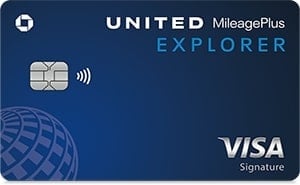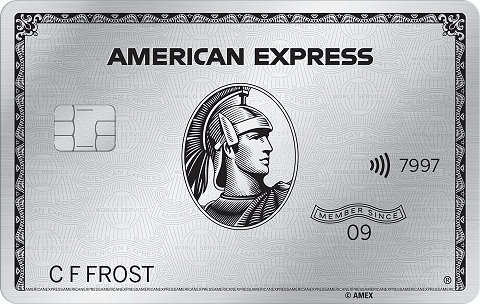Which Is Cheaper: Booking Rental Cars in Advance or Last Minute?
Our analysis found you could save 13.4% on average by booking last minute. But should you really procrastinate?

Many or all of the products on this page are from partners who compensate us when you click to or take an action on their website, but this does not influence our evaluations or ratings. Our opinions are our own.
Conventional wisdom suggests that you book travel reservations in advance to nab the best deal. But when it comes to rental cars, this might surprise you: The best time to rent a car is last minute, when they tend to be cheaper.
That’s according to a NerdWallet analysis conducted in June 2024 of more than 480 rental car prices from eight major car rental companies in the United States. The prices chosen for this analysis were the cheapest possible option (typically a small sedan) that allowed you to pay at the counter (as opposed to in advance) and included taxes and fees. The analysis compared the cost to book a car for seven nights, reserved three months in advance versus seven days in advance.
NerdWallet found that customers pay on average $74 more to book a weeklong rental car three months in advance compared with booking the same rental just a week in advance. That translates to an extra cost of 13.4%, on average, simply for booking early.
The best time to book rental cars
Do car rental prices go up closer to the date? Actually, not always — and not often.
The NerdWallet analysis — accounting for the booking time frame across multiple destinations and car rental brands — discovered that renting a car even three days before your reservation start date can yield significant savings.
Rental car companies Alamo, Avis, Budget, Dollar, Enterprise, Hertz, National and Thrifty were all included in the analysis.

The savings materialized for every rental car company in the analysis. The difference was starkest at Thrifty. There, you could save on average 28.02% by booking seven days out versus three months in advance. Even at Enterprise, which had the slightest difference, it was still more costly to book three months in advance.
Here’s the percentage difference in costs by rental car company:
Rental car company | Average percent savings if you reserve one week out vs. three months out |
|---|---|
Alamo | 4.17%. |
Avis | 15.01%. |
Budget | 9.64%. |
Dollar | 19.22%. |
Enterprise | 2.72%. |
Hertz | 23.60%. |
National | 5.09%. |
Thrifty | 28.02%. |
You don’t save money by reserving a rental car in advance, no matter how you slice it. Procrastinators might consider this an opportunity to rejoice.
Why you might still book rental cars in advance
Even though last-minute rental cars tend to be cheaper, it might not be a good idea to procrastinate on booking — whether intentionally or not.
You don't want to risk sold-out cars
If you wait too long, you take the gamble that last-minute inquiries will yield no availability. If you absolutely need a rental car, that's risky.
You especially don’t want to find yourself stuck in a city with no public transportation and limited availability of rideshare services only to realize rental cars are sold out. The bright side of booking now: You can lock in a rate that you’re at least OK with, as it’s better than sold-out cars.
And while the data suggests that renting last minute is generally cheaper, that’s not always the case. Especially in popular vacation destinations like Hawaii, there are horror stories of renters making last-minute bookings (or changes to existing bookings) only to incur extra costs of over a thousand dollars.
You might be able to reserve a car now — and rebook the same one later at a discount
Here’s a strategy that might get you the best of both worlds: the guarantee of a reservation and the possibility of a cheaper reservation. Reserve your rental car as soon as possible, and select the option that allows you to lock in your rate but pay at the counter.
Traditional rental car companies typically let you do this — though the option is less common for car rental alternatives such as Turo, Kyte or Getaround.
Ahead of your trip, periodically check your booked rental price. If the price dips lower than what you initially paid, cancel and rebook. If you didn’t prepay for your reservation, most rental car companies won't charge you a cancellation fee.
Other ways to save on rental cars
There are other, smarter ways to save on rental cars besides relying on procrastination.
Consider non-traditional rental cars: Don't overlook those aforementioned rental car alternatives. They're sometimes (though not always) cheaper.
Leverage memberships: Paid membership programs such as Costco or AAA, as well as memberships tight to affiliations such as corporate discounts, can offer additional savings.
Commit to one driver: Many car rental companies charge an extra fee to allow multiple drivers to use one car. Though, there are ways around the fee. In fact, some of those membership programs named above allow you to add more drivers without the extra fee.
Use the right credit card: Great travel credit cards are about so much more than earning bonus points on rental cars. Some travel credit cards also offer rental car insurance as a benefit for paying with that credit card.
» See more options: Best credit cards for rental cars
$95.
$0 intro for the first year, then $150.
$695.
$795.
• Primary rental car coverage with reimbursement up to the cash value of most rental vehicles.
• Booking a car rental through Chase Ultimate Rewards® earns 5 points per dollar spent.
• Primary rental car coverage that reimburses up to the cash value of most rental cars.
• Other day-of-travel benefits for United flyers include a free checked bag, priority boarding and lounge passes.
• Complimentary elite status with Avis, Hertz and National, which entitles the member to upgrades and discounts.
• Secondary rental car coverage.
• Other benefits include expansive airport lounge access and hundreds of dollars' worth of travel credits.
• Terms apply.
• Primary rental car coverage with reimbursement up to $75,000.
• Booking a car rental through Chase Ultimate Rewards® earns 10 points per dollar spent.
• Cardholders eligible for special benefits from Avis, National and Silvercar.
To view rates and fees of The Platinum Card® from American Express, see this page.
Insurance Benefit: Car Rental Loss & Damage Insurance
Car Rental Loss and Damage Insurance can provide coverage up to $75,000 for theft of or damage to most rental vehicles when you use your eligible Card to reserve and pay for the entire eligible vehicle rental and decline the collision damage waiver or similar option offered by the Commercial Car Rental Company. This product provides secondary coverage and does not include liability coverage. Not all vehicle types or rentals are covered. Geographic restrictions apply.
Eligibility and Benefit level varies by Card. Terms, Conditions and Limitations Apply.
Please visit americanexpress.com/benefitsguide for more details.
Underwritten by AMEX Assurance Company. Car Rental Loss or Damage Coverage is offered through American Express Travel Related Services Company, Inc.
How to maximize your rewards
You want a travel credit card that prioritizes what’s important to you. Here are some of the best travel credit cards of 2025:
Flexibility, point transfers and a large bonus: Chase Sapphire Preferred® Card
No annual fee: Wells Fargo Autograph® Card
Flat-rate travel rewards: Capital One Venture Rewards Credit Card
Bonus travel rewards and high-end perks: Chase Sapphire Reserve®
Luxury perks: The Platinum Card® from American Express
Business travelers: Ink Business Preferred® Credit Card









